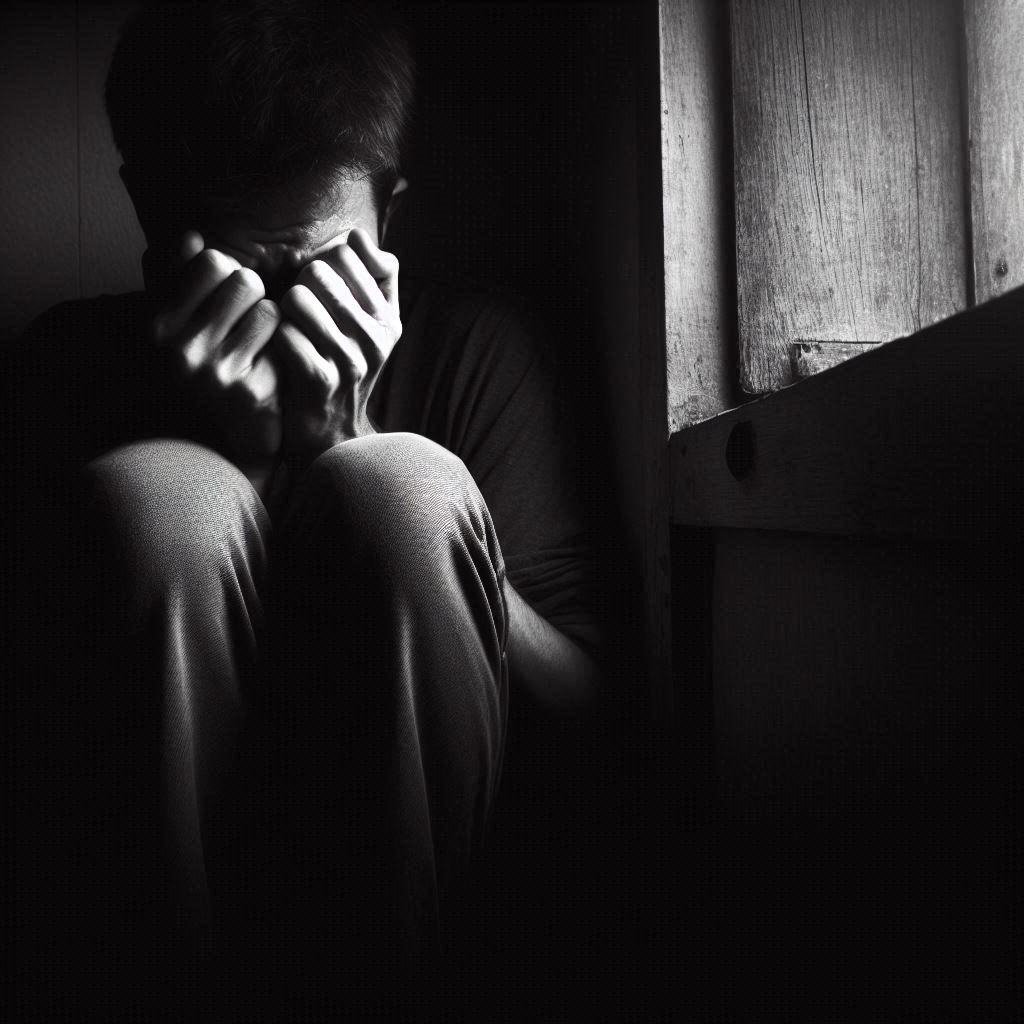Feeling scared of leaving the house isn’t just shyness or nerves—it’s something deeper. For many, it’s tied to anxiety, past experiences, or an overwhelming fear of the unknown.
This feeling can creep in slowly or hit all at once, leaving you stuck in a loop of “what ifs.” In today’s world, where we’re constantly told to push through, it’s easy to feel isolated if the thought of stepping outside feels impossible. But you’re not alone, and this fear doesn’t have to control your life.
Let’s talk about why this happens and how to take the first steps toward breaking free.
What is Agoraphobia?
Agoraphobia is more than just being afraid of crowded spaces or public areas—it’s the intense fear of situations where escaping feels impossible or help seems out of reach. For many, this manifests as a deep fear of leaving the house. It’s not about laziness or a dislike for the outdoors; it’s an overwhelming anxiety tied to specific scenarios. Whether it’s running errands, attending social events, or even standing in open spaces, people with agoraphobia often feel trapped by “what ifs.” These worries can make the simple task of stepping outside feel like an uphill battle.
Symptoms of Agoraphobia
If you’re scared of leaving the house, you might wonder if it’s something more. Agoraphobia comes with both physical and emotional symptoms, and recognizing them is the first step toward understanding the condition. Here are some of the most common signs:
- Avoiding specific places or situations: Crowds, public transit, or wide-open areas may cause discomfort or panic.
- Physical sensations of panic: Sweating, rapid heartbeat, shortness of breath, or dizziness in feared scenarios.
- Feeling trapped or helpless: A consistent worry that you can’t get out or get help if something goes wrong.
- Need for a “safe zone”: Staying close to home or feeling uneasy when going too far away.
- Dependency on others: Needing someone to accompany you whenever you go outside.
- Constant worry about panic attacks: Even anticipating a situation can trigger anxiety.
Not everyone experiences all of these symptoms, and they can range from mild to severe. However, if these behaviors or feelings are controlling your life, it’s worth taking a closer look.
Causes of Agoraphobia
So, what makes someone feel so scared of leaving the house? The truth is, there’s no one-size-fits-all answer. Agoraphobia often develops due to a mix of personal experiences, biological factors, and emotional triggers. Let’s break it down.
- Panic disorder: For many, agoraphobia starts with panic attacks. After experiencing one, the fear of another can make certain places or situations feel dangerous.
- Trauma: A bad experience—whether it’s an accident, injury, or loss—may create a fear of being outside or away from safety.
- Family history: If anxiety runs in your family, you might be more likely to experience agoraphobia.
- Chronic stress: Long-term stress can wear down your ability to cope, making everyday activities feel overwhelming.
- Brain chemistry: Imbalances in brain chemicals like serotonin can influence anxiety levels.
- Overthinking risk: Some people are naturally more cautious; over time, this cautiousness can grow into fear.
Agoraphobia isn’t always about one big event. Sometimes, it sneaks up on you as small worries build into bigger fears. The good news? Understanding the causes can help you piece together what’s driving your fear—and why it doesn’t have to stay that way.
Impact on Daily Life
Being scared of leaving the house doesn’t just stay in your head. It seeps into every corner of your life, shifting how you live, work, and connect with others. It’s not just about skipping trips to the store—it’s about the ripple effects that impact your days, weeks, and even years. Let’s look at how this fear changes daily routines and relationships.
Social Isolation
When leaving the house feels impossible, staying connected with others becomes a challenge. Social events, even casual meetups, start to feel like giant mountains you can’t climb. Plans get canceled, texts go unanswered, and slowly, you might find yourself pulling away from friends and family.
It doesn’t happen overnight. Maybe you skip a birthday party because you can’t handle the thought of being in a crowded room. Then it’s dinner plans, then a simple walk outside with a neighbor. After a while, even sitting by the window can feel too exposed.
The hard part? People might not understand. They could think you’re avoiding them or being rude, which only adds to the guilt. Over time, the fear builds walls around you, making socializing feel like something out of reach. The result is loneliness—not the kind where you’re just bored, but the deep kind that makes you question if you’ll ever feel normal again.
Effects on Employment
Holding down a job while being scared of leaving the house? It feels like trying to run a marathon with no shoes. Getting to work may feel like a nightmare, whether it’s anxiety about commuting, being in an office, or dealing with coworkers.
For many, this fear pushes them to quit altogether. Suddenly, remote work becomes the only option, but that’s not always sustainable or available. Missed meetings or calls? Not good for job security. And the longer this cycle goes on, the harder it gets to even consider stepping foot into a workplace again.
If you’re self-employed or freelance, the fear doesn’t go away either. You might avoid networking events, client meetups, or even picking up projects that require travel. The opportunities shrink, and so does your confidence.
Over time, this fear doesn’t just cost you money. It can impact your sense of purpose. Work isn’t just about a paycheck—it’s about feeling like you’re contributing to something. Losing that connection can feel like losing a piece of yourself.
Coping Mechanisms and Strategies
Living in fear of leaving the house can feel like being trapped in an invisible cage. Every step toward the door seems heavy, and even thinking about going out brings a tidal wave of worry. But here’s the thing: you don’t have to live like this forever. While it’s not an easy road, there are strategies and tools that can help you regain control one step at a time. Let’s break it down into practical approaches you can try.
Gradual Exposure Therapy
One of the most effective therapies for fears like this is gradual exposure therapy. The idea is simple but powerful: you face your fear in small, manageable doses.
Instead of forcing yourself to go from being housebound to running errands in a busy place, you start small. Maybe it’s stepping outside your front door or standing on your porch. Once that feels okay, take it up a notch—walk to your mailbox or sit in your yard for a few minutes.
The goal isn’t to overwhelm yourself. It’s to chip away at the fear little by little. Think of it like climbing a ladder: each step builds confidence for the next. You’re teaching your brain that these experiences aren’t as dangerous as they seem.
This process works best with professional guidance, like a therapist familiar with anxiety disorders. But even if you’re going it alone, tracking your progress can help. Write down where you went, how you felt, and what you learned. Over time, those small victories will add up.
Cognitive Behavioral Therapy (CBT)
Sometimes, the problem isn’t the situation itself—it’s the way you think about it. That’s where Cognitive Behavioral Therapy (CBT) comes in. It’s all about changing the patterns in your brain that fuel your anxiety.
When you’re scared of leaving the house, your mind might play out worst-case scenarios on repeat. “What if I panic and can’t get help?” “What if people think I’m weird?” These thoughts feel real, but they’re often distorted. CBT helps you challenge and reframe them.
For example, instead of thinking, “If I leave, something terrible will happen,” CBT teaches you to ask, “What evidence do I have for that?” or “What are the chances this will actually happen?” You learn to replace fear-driven assumptions with balanced, fact-based thinking.
CBT also focuses on actions. A therapist might work with you to practice relaxation techniques, create a routine, or set achievable goals. It’s not just about talking—it’s about building skills to handle your anxiety head-on.
Self-Help Techniques
Not everyone has access to therapy, and that’s okay. There are plenty of self-help techniques you can start using today to take back some control.
- Mindfulness and Relaxation: Anxiety thrives on “what ifs.” Mindfulness brings your focus back to the present moment. Apps like Calm or Headspace can guide you through relaxation exercises, even if you only have five minutes to spare.
- Journaling: Write down your fears and challenge them. Sometimes, seeing your thoughts on paper can help you process and release them. Plus, tracking your successes—no matter how small—reminds you how far you’ve come.
- Affirmations: Positive self-talk can feel weird at first, but it works. Repeat simple, empowering phrases like, “I’ve handled this before, and I can handle it again.” It’s about rewiring your mindset over time.
- Breathing Exercises: When your heart races, focus on your breath. Inhale for four counts, hold for four, and exhale for six. This signals your body to calm down.
- Set Micro-Goals: Don’t try to do it all at once. Start small—maybe it’s opening your front door for 30 seconds. Tomorrow, add another 10 seconds. Celebrate every single step forward.
In addition to these, online communities, support groups, and books on overcoming anxiety can be great resources. Knowing you’re not alone—and hearing from others who’ve been in your shoes—can provide comfort and encouragement.
Coping with the fear of leaving the house isn’t a one-size-fits-all journey. What works for someone else might not work for you, and that’s okay. The important thing is trying—and trusting that with every small step, you’re moving closer to freedom.
Professional Help
When fear of leaving the house becomes a daily struggle, seeking professional help is one of the best steps you can take. While self-help techniques can be empowering, knowing when to involve experts is key. Professionals bring experience, compassion, and strategies tailored to your situation. You don’t have to tackle this alone.
Finding the Right Therapist
Choosing a mental health professional is a personal decision, but focusing on therapists who specialize in anxiety disorders can make a difference. Why? Because they’ve likely seen this scenario before and understand how to help. Here’s how to get started:
- Search smarter: Use directories like Psychology Today or TherapyDen to find licensed therapists near you. Many sites let you filter by specialization, including anxiety and agoraphobia.
- Ask questions: Once you’ve found someone, schedule a consultation. Ask about their experience with anxiety cases and what methods they use. Look for terms like Cognitive Behavioral Therapy (CBT) or exposure therapy.
- Check credentials: Look for credentials like LPC, LCSW, or PsyD. While letters don’t guarantee success, they mean the therapist has formal training.
- Consider online therapy: If leaving home is hard, teletherapy can be a game changer. Platforms like BetterHelp and Talkspace make connecting with professionals more accessible.
Don’t be discouraged if the first therapist isn’t the right fit. Therapy is like trying on shoes—sometimes, it takes a couple of tries. Remember, the goal is to feel understood and supported.
Support Groups
You’re not the only one navigating this. Support groups connect you with others who truly “get it.” They can be a lifeline when fear makes you feel isolated.
Why do support groups matter? Because talking to people who’ve been where you are can be a relief. They offer empathy, practical tips, and most importantly, a reminder that you’re not alone.
Here’s how to find the right group:
- Search locally: Check with community centers, hospitals, or local mental health organizations. Many host free or low-cost groups for anxiety and agoraphobia.
- Explore online options: Can’t leave the house yet? No problem. Online forums like “Anxiety and Agoraphobia Support” on sites like Reddit or Facebook offer a safe space to connect.
- Look into national organizations: Groups like the Anxiety and Depression Association of America (ADAA) often list group resources.
The beauty of a support group is that it’s not just about advice—it’s about camaraderie. Hearing, “I went through that too,” can be a powerful motivator to take your next step.
Adding professional help and support to your toolkit can change everything. It’s a reminder that you’re not in this alone—and with the right team, you can face those fears head-on.
Take Away Points
When you’re scared of leaving the house, the day-to-day struggle can feel all-consuming. It’s easy to lose focus on what really matters when fear takes over. Here are some key takeaways that can offer perspective and remind you that there’s hope.
Progress, Not Perfection
It’s not about waking up one day suddenly fearless. That’s not realistic. What matters is small, consistent progress. Maybe today, you open the door and take a deep breath outside. That’s a win. Tomorrow, you could take another step further.
Success isn’t measured in leaps and bounds; it’s the tiny steps that get you closer to freedom. Don’t compare your journey to others. Your progress is yours alone, and every small victory counts.
You’re Not Alone
One of the hardest parts of this fear is feeling isolated, like no one really understands. But you’re far from alone. Many people feel the same way, even if they don’t talk about it. The important thing is reaching out. Whether it’s a family member, a friend, or even an online community, connection can make a world of difference.
Support groups, therapy, or a simple conversation can remind you that other people see you, hear you, and want to help.
Fear is Not Your Identity
It’s easy to let fear define you. You start to think, “This is just who I am.” But here’s the truth: fear is something you experience, not who you are. It’s a reaction, a part of you—not the whole picture.
You are more than your fear. You’re resilient, capable, and deserving of a full life outside those walls. It’s tough to believe it when you’re in the thick of it, but that doesn’t make it any less true.
Help is Out There
You don’t have to do this alone. Professionals are out there who’ve helped others walk this same road. Therapies like Cognitive Behavioral Therapy (CBT) or exposure therapy are specifically designed to tackle fears like this. Even if you’re not ready for therapy, self-help tools or support groups can make a huge difference.
If leaving the house feels like too much right now, virtual therapy is an option. The important thing is taking that first step toward help—no matter how small it feels.
Tomorrow is a New Chance
Some days will be setbacks. That’s just life. But every sunrise is an opportunity to try again. Even if yesterday was a complete disaster, today is a clean slate. Progress isn’t linear, and that’s okay.
When you stumble, remind yourself: growth happens in messy, imperfect ways. What matters is showing up for yourself, day after day, little by little.
Practical Tools to Hold Onto
To keep moving forward, it helps to have some practical tools at your side.
- Breathing exercises keep you grounded when panic creeps in.
- Journaling lets you put your fears into words and challenge them.
- Positive affirmations, like “I can face this moment,” remind you of your strength.
- Planning small outings gives you a sense of control over the situation.
These aren’t magical fixes, but they’re tools to help you face fear step by step.
Hope Takes Practice
Hope might feel distant right now. It’s hard to imagine a life without this weight. But hope isn’t something you wait for—it’s something you cultivate. By taking small actions and reminding yourself of your progress, hope grows.
There’s no timeline for overcoming this fear. But with patience and persistence, you can find your way forward. Every small step, every small success—it all adds up to something incredible.
Conclusion
Being scared of leaving the house can feel like a never-ending battle, but it’s a fight you can win. Each small step you take—from facing fears gradually to seeking help—adds to your progress. The journey might not be quick, and setbacks will happen, but every effort counts.
Remember, fear isn’t your identity. It’s temporary and treatable. Help is out there—whether you reach out to a therapist, lean on a support group, or start with self-help strategies. You are not alone in this, even if it feels that way right now.
Your world doesn’t have to stay limited to four walls. Change begins with one step, no matter how small. Take it today—you’re stronger than you think.








